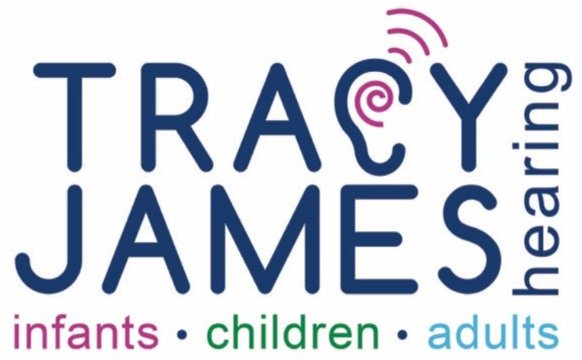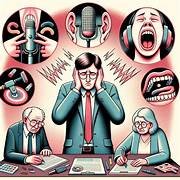Tinnitus Awareness Week 3rd-9th February 2025: Discussing Misophonia
Misophonia
What is it?
It is tinnitus awareness week this week and whilst Misophonia isn’t a form of ringing in the ear, (like tinnitus) Misophonia is finding certain sounds painful upsetting or distressing to listen to, even though everyone else around us finds them okay or easy to ignore.
Sounds such as eating or chewing are often the main offenders, this can extend to environmental sounds such as keyboard tapping or rustling paper. Sometimes even seeing the sound being produced can cause a reaction. It is not unusual for these sounds to cause a stronger reaction to certain people making the sound for the Misophonic sufferer than others. The sufferers reaction to sound is so specific that it can be different dependent on who, or what is making the sound. This discomfort to sound is thought to come from our emotional or limbic system and flight and fight response rather than a tolerance issue in our auditory/hearing system, which is different to hyperacusis as described below. Frontiers | The neurophysiological approach to misophonia: Theory and treatment
What is it not?
Someone who has Hyperacusis (as apposed to Misophonia) has an abnormal discomfort to everyday sounds usually of similar spectrum and loudness level. With hyperacusis we know this is due to an alteration in the processing of sound on our auditory pathway which then causes an abnormally strong reaction to being exposed to moderate loud sound. This is different to Misophonia because the sounds are unusually environmental and purely based on the sound itself.
Oxford NHS Health describes the reactions to sound well for the Misophonic sufferer
‘Whilst many people find these noises annoying, individuals with Misophonia describe an intense feeling of disgust, anger, distress, or panic that escalates while the sound is still present. This can happen even when the sound is at a very low volume. They report physical sensations similar to a flight or fight response, including racing heart, shortness of breath, tension, feeling hot. They often describe a feeling trapped, helpless, and out of control when they can’t get away from these sounds.’
So what can we do?
History taking
Taking an extensive history is crucially important in helping the sufferer and the clinician get an understanding of where it comes from. The Misophonia brain sees these sounds as painful and upsetting but the response is routed in the way the brain registers it, waits for it and responds to it.
For example, we said that many Misophonia suffers find listening to someone chew painful and that certain people may even cause a more severe response. This for many suffers may have started years before. It may be attached to a negative experience that they had and over time the reaction has intensified. Getting the client to understand how it started can help with understanding why it is there.
What is happening
Using the same example the brain starts to get agitated when it is dinner as it knows people are going to chew. So immediately you are in flight or fight. Your response to that sound is now going to be worse than if you were relaxed. They make the sound, you feel pain you get scared and that heightens your response. It doesn’t have to be loud at all, even seeing it will upset and distress you.
Yet here’s the thing. Unlike hyperacusis you may find that having the TV on your favourite show at a louder volume than the chewing is fine and be quite happy and comfortable listening to it, but the chewing is absolute agony and that’s from a sound that is quieter than the TV!
What further action can you take if you have Misophonia?
So we understand that its this emotional response that is the issue. Seeing someone who understands Misophonia will help you break down your reactions to the sound. Its not always a quick thing to do, as we have to change the brains response to a learnt behaviour and this takes time and work.
Having another sound or distraction that is comforting or even a fidget ball can help distract your brain from reacting so severally if you are able to listen to it (or distract using a fidget ball, moving the brain to concentrate on a tactile response)). This may be background music, ambient music anything that you like. This helps distract the brain from the signal as there is another sound and also there is not a big difference from quiet to suddenly a sound occurring. Remember depending on your tolerance levels daily you may need to alter the level of background sound.
Avoid as much as you can wearing ear protection. This just makes you more sensitive as you are now making a bigger difference between quiet and noise and hence induce a bigger reaction.
…and finally…
Some people are more prone to Misophonia than others. For example, those with Autistic Spectrum Dissorder (ASD), and Post Traumatic Stress Dissorder (PTSD) can often have more heightened reactions to sound.
Its important to get help as early as you can and stop the cycle impacting your life.
Here at Tracy James Hearing, we are proud to offer the first independent tinnitus and hyperacusis management service in West Berkshire with myself, Louise Hart. Tinnitus Specialist, Audiologist & Trainer
This article was written by Louise Hart BA (Psych) Grad Dip Audiology, RCCP RHAD
“We know the earlier we intervene in helping people manage their tinnitus and/or hyperacusis the more successful the outcome for them. Despite research on drug or physical interventions on tinnitus, at present none seem to consistently reduce tinnitus well enough; this is why management techniques are used to combat tinnitus. For over 20 years chronic pain sufferers have successfully been using cognitive behavioural techniques to manage pain, and we now have more studies showing the same success with tinnitus”
- Louise Hart



